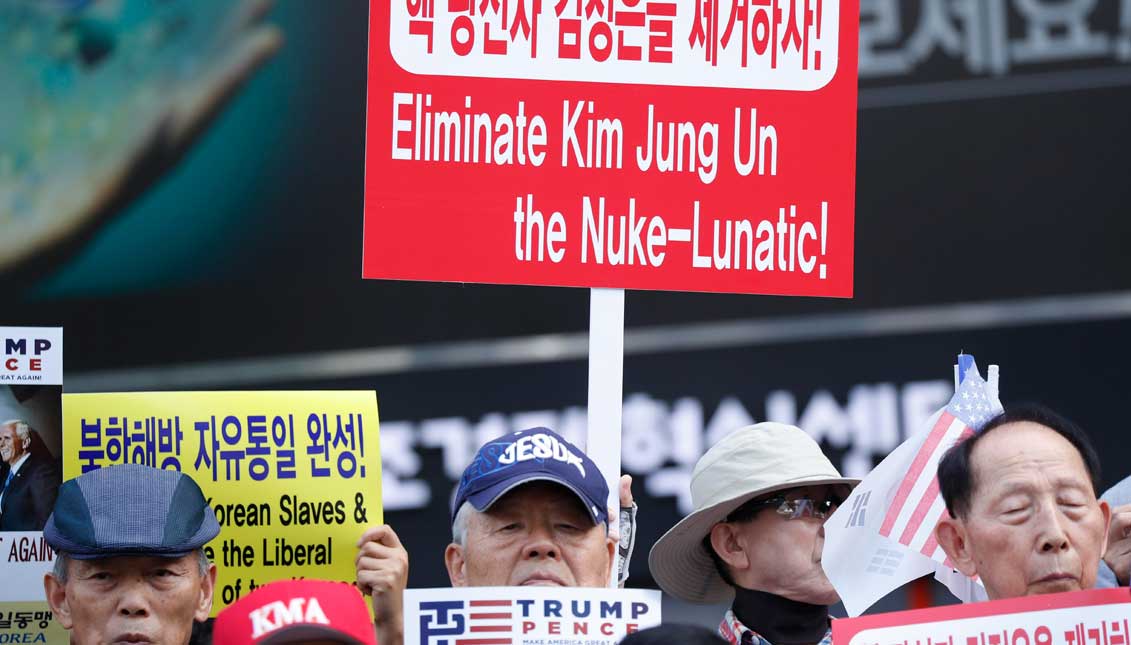
[OP-ED]: Give South Korea a break
MORE IN THIS SECTION
Not surprisingly, there’s been plenty of pushback. The South Koreans were clearly angered, and so were many Americans.
“Trump’s Korean Trade Folly” was the headline on a Wall Street Journal editorial. In a press release, the Republican chairmen and Democratic ranking members of Congress’ two trade committees -- the Senate Finance Committee and the House Ways and Means Committee -- warned against abandoning the pact. “North Korea’s latest nuclear test underscores yet again the vital importance of the strong alliance between the United States and South Korea. ... We must not withdraw from the agreement.”
An advisory group -- consisting of business, labor and nonprofit members -- echoed the message: “We must not allow bilateral disputes to signal any friction or weakness in our mutual support.”
RELATED CONTENT
The Trump administration complains that South Korea doesn’t buy enough U.S. exports, adding to America’s chronic trade deficits. In 2016, the United States had a $27.7 billion trade deficit in goods (cars, computer chips, cellphones) with South Korea. However, this figure is misleading, as economist Jeffrey Schott of the Peterson Institute, a think tank, points out. He notes that the United States runs about a $10 billion surplus in services (transportation, tourism and legal services), reducing the overall trade deficit with South Korea to $17.6 billion in 2016.
Moreover, as Schott also notes, the deficit with South Korea is a tiny part of the overall U.S. trade deficit, even if only “goods” are counted. In 2016, that deficit was $737 billion; South Korea’s share ($27.7 billion) was less than 4 percent. The shares of China, the European Union and Japan were much larger. These numbers suggest that Trump went after South Korea because it was the easiest target. He could fulfill his campaign promise to be tough on trade on the cheap.
Think again. If the United States ended the free trade agreement, American exports would probably suffer, even if there were no explicit retaliation, which there might be. Take cars. Before the agreement, the U.S. tariff on South Korean imports was 2.5 percent, while the South Korean tariff on U.S. imports was 8 percent. Although both tariffs would be restored, the 8 percent South Korean tariff would probably reduce U.S. sales more than the 2.5 percent tariff would cut South Korean sales.
Similarly, American pork exports, which have boomed from deep tariff reductions, would probably lose market share to producers from other countries that enjoyed free trade agreements. Both China and the European Union have free trade deals with South Korea. All this implies that a Trump rejection of the free trade agreement would be bad economic policy as well as a geopolitical disaster.
The best that could happen now is that the Trump administration would admit as much. It would announce that it’s indefinitely postponing trade negotiations with South Korea and focusing its undivided attention on the nuclear threats to South Korea, Japan and the United States. These are momentous issues; the trade disputes, by contrast, are small sideshows.







LEAVE A COMMENT:
Join the discussion! Leave a comment.